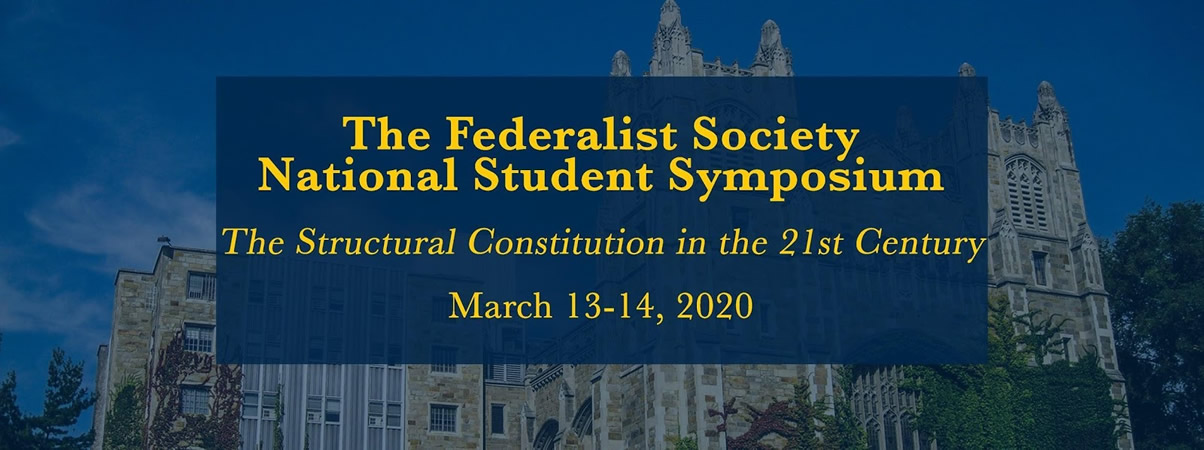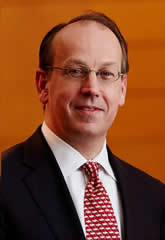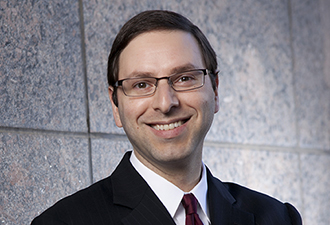625 State Street
Ann Arbor, MI 48109

The Structural Constitution in the 21st Century
March 14, 2020Audio and video from the Symposium are now online.
Click the agenda tab to watch the videos!
IMPORTANT UPDATE:
Dear 2020 National Student Symposium Registrants,
The Federalist Society and the University of Michigan Chapter have been closely monitoring the Coronavirus/COVID-19 situation. We hoped that the Symposium would be able to continue as planned. However, given the call for everyone worldwide to make every effort possible to contain this virus, and given the cancellations of several of our speakers, we have decided to cancel the in-person 2020 National Student Symposium.
We are currently planning on livestreaming the Symposium. The updated live stream schedule has been posted here.
This year marks the 39th anniversary of our first National Student Symposium. This cancellation without a doubt will cause a great deal of disappointment. However, we think this is the most responsible course of action under the circumstances. Another major factor is that some schools are suspending domestic travel and canceling classes altogether. In canceling, we join several other organizations, including South by Southwest and the American Bar Association.
We would encourage you to mitigate whatever travel and lodging expenses you are able to recoup, and The Federalist Society will still honor the 50% student travel scholarships for any costs that are incurred: https://fedsoc.org/travelscholarship.
Obviously, all registration and banquet fees will be reversed on your credit cards within the next few days.
If you have any questions or concerns, please do not hesitate to reach out.
Respectfully,
Adam Steinhilber
Symposium Chair
Kellie Majcher
Michigan Chapter President
The University of Michigan Law School’s Federalist Society Chapter will host the 39th Annual National Student Symposium on March 14, 2020. The topic of the Symposium is “The Structural Constitution in the 21st Century.”

Titled “The Structural Constitution in the 21st Century,” the Symposium will focus on federalism and the relationships among the branches of government. When the Framers wrote the Constitution, they established a system and structure of government designed to protect the rights of individuals and states. Unfortunately, for many years this structure was neglected, which allowed the federal government to acquire greater power as it ate away at our system of federalism. Recent judicial appointments, spearheaded by Justice Gorsuch, suggest that the tide is turning, with an expected increase in respect for our nation’s unique system of government. Symposium panelists will discuss the proper role and function of our “Structural Constitution” in this exciting new era of American jurisprudence.
The Symposium will host four panels on significant constitutional issues that we hope will generate serious discussion among students, scholars, and practitioners:
Keynote Address:
We are pleased to announce that the Honorable Paul D. Clement will be the keynote speaker. Mr. Clement served as the 43rd Solicitor General of the United States from June 2005 until June 2008. Before his confirmation as Solicitor General, he served as Acting Solicitor General for nearly a year and as Principal Deputy Solicitor General for over three years.

The Honorable Paul D. Clement
Former Solicitor General of the United States
Partner, Kirkland & Ellis LLP
Distinguished Lecturer in Law, Georgetown University Law Center
The 2020 Joseph Story Award:
We are proud to present the 2020 Joseph Story Award to Professor Stephen E. Sachs of Duke University. The annual award recognizes a young academic (40 and under) who has demonstrated excellence in legal scholarship, a commitment to teaching, a concern for students, and who has made a significant public impact in a manner that advances the rule of law in a free society. Click here for more information.

Professor Stephen E. Sachs
Professor of Law
Duke University School of Law
2020 National Student Symposium
| Topics: | Constitution • Federalism • State Governments |
|---|
On March 14, 2020, the Federalist Society held its 39th National Student Symposium. The Symposium was originally scheduled to be held at the University of Michigan's Law School but was rescheduled as a digital conference. The first panel covered The Compact Clause.
The Compact Clause has received extra attention recently because of the Electoral College and the proposed state compact concerning the popular vote, but that is far from the only use of the compact clause. There are currently 200 active interstate compacts ranging from the significant to the almost trivial. The environment, metropolitan transportation authorities, and waterways are a few major areas where compacts are frequent. What can compacts properly cover? When are they constitutionally forbidden? When permitted, when do they promote good public policy, and what are the dangers posed by their use?
*******
As always, the Federalist Society takes no position on particular legal or public policy issues; all expressions of opinion are those of the speakers.
2020 National Student Symposium
| Topics: | Article I Initiative • Constitution • Election Law • Separation of Powers |
|---|
On March 14, 2020, the Federalist Society held its 39th National Student Symposium. The Symposium was originally scheduled to be held at the University of Michigan's Law School but was rescheduled as a digital conference. The second panel explored "The Proper Role of the Senate".
Much has changed concerning the Senate since the adoption of the Constitution. It is now directly elected. The nature of its power has changed with the passage of the 16th Amendment. And its unique role in confirmations and treaties and the nature of its role protecting smaller states all have undergone much discussion. The Senate has always played a key role in balancing purely democratic power. It has also protected the states and possibly served to defuse otherwise hostile geographical battles. Does or should this role change in our modern democracy? If so, how?
*******
As always, the Federalist Society takes no position on particular legal or public policy issues; all expressions of opinion are those of the speakers.
2020 National Student Symposium
| Topics: | Article I Initiative • Constitution • Federal Courts • Federalism • Separation of Powers • Supreme Court • Federalism & Separation of Powers |
|---|
On March 14, 2020, the Federalist Society held its 39th National Student Symposium. The Symposium was originally scheduled to be held at the University of Michigan's Law School but was rescheduled as a digital conference. Hon. Paul D. Clement offered the keynote address.
Featuring:
*******
As always, the Federalist Society takes no position on particular legal or public policy issues; all expressions of opinion are those of the speaker.
2020 National Student Symposium
| Topics: | Constitution • Federal Courts • Politics • Separation of Powers |
|---|
On March 14, 2020, the Federalist Society held its 39th National Student Symposium. The Symposium was originally scheduled to be held at the University of Michigan's Law School but was rescheduled as a digital conference. The third panel discussed the question "Do Changing Norms Undermine Support for Our System of Government?".
Norms range from having quasi-constitutional force to simply being generally accepted modes of conduct that are more easily broken. Such norms include: The Supreme Court has nine members; Congress invites the President for the State of the Union message; the Senate acts on nominees; children are left alone in political campaigns; and the press ignores old sexual peccadilloes. In the area of congressional action, major new legislation historically required bipartisan support, but this did not occur with the Affordable Care Act. There are now battles over recess appointments for political purposes as opposed to the practical purpose of filling positions when Congress is in recess. Is there generally less self-restraint and more willingness to achieve short-term goals by whatever means with less respect for process? If so, does that pose a serious threat to our Constitution, and what might be done about it?
*******
As always, the Federalist Society takes no position on particular legal or public policy issues; all expressions of opinion are those of the speakers.
2020 National Student Symposium
| Topics: | Constitution • Federalism • State Courts • State Governments |
|---|
On March 14, 2020, the Federalist Society held its 39th National Student Symposium. The Symposium was originally scheduled to be held at the University of Michigan's Law School but was rescheduled as a digital conference. The fourth panel discussed "Originalism and Interstate Relations"
The Constitution famously says very little about interstate relations. Writing for the Court in Franchise Tax Board v. Hyatt, Justice Thomas suggested that the Constitution “reflects implicit alterations to the States’ relationships with each other, confirming that they are no longer fully independent nations.” How much of the law of interstate relations is truly settled by the Constitution? As for the rest, what kind of law governs instead? Is it federal or state, general or international, written or unwritten? And what does it provide?
This panel examines what originalism has to say, if anything, about questions of “horizontal federalism”—such as personal jurisdiction, choice of law, full faith and credit, extraterritorial regulation, state borders, sovereign immunity, and other areas of interstate dispute. How did the Founders understand these questions, either before the Constitution or after? What duties do the fifty states owe one another? And what are the roles of Congress and the courts in determining the answers?
*******
As always, the Federalist Society takes no position on particular legal or public policy issues; all expressions of opinion are those of the speaker.
2020 National Student Symposium
| Topics: | Federalist Society |
|---|
On March 14, 2020, the Federalist Society held its 39th National Student Symposium. The Symposium was originally scheduled to be held at the University of Michigan's Law School but was rescheduled as a digital conference. The 2020 Story Award was presented to Professor Stephen E. Sachs of Duke University School of Law.
Featuring:
* * * * *
As always, the Federalist Society takes no position on particular legal or public policy issues; all expressions of opinion are those of the speaker.
Learn more about the Joseph Story Award:
https://fedsoc.org/joseph-story-award
FedSoc Blog: The 2020 Joseph Story Award
https://fedsoc.org/commentary/fedsoc-blog/the-2020-joseph-story-award
FedSoc Blog: Remarks from the 2020 Joseph Story Award
https://fedsoc.org/commentary/fedsoc-blog/remarks-from-the-2020-joseph-story-award